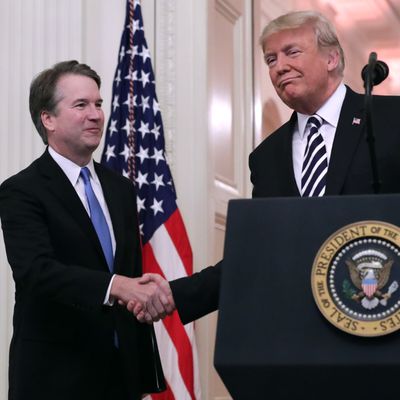
In her lengthy speech explaining for vote to seat Brett Kavanaugh on the Supreme Court, Senator Susan Collins emphasized the high evidentiary standard she required to disqualify a justice she had previously supported over allegations of sexual assault. “This is not a criminal trial, and I do not believe that claims such as these need to be proved beyond a reasonable doubt, nevertheless fairness of this terrible problem…” she argued, “the Senate confirmation process is not a trial. But certain fundamentally legal principles about due process, the presumption of innocence, and fairness do bear on my thinking, and I cannot abandon them. In evaluating any given claim of misconduct we will be ill served in the long republic if we abandon the presumption of innocence and fairness tempting though it may be.”
That was the basis of her endorsement: the charges of Kavanaugh had to meet a high standard, perhaps not the level of proof required to secure a criminal conviction in court, but high. It is probably the most coherent and defensible endorsement for Kavanaugh.
President Trump, however, has been unable to stick to this line of reasoning. He has mocked Christine Blasey Ford in public as a liar while his supporters cackled in the background. At his remarks tonight at Kavanaugh’s induction ceremony at the White House, Trump told Kavanaugh, “You sir, under historic scrutiny, were proven innocent.”
Proven innocent.
This will ultimately be the position conservatives land on with regard to Kavanaugh, especially as he rewards them with favorable rulings in the coming decades. They will forget all their doubts and nuanced arguments about the burden of proof and remember their justice as a wholly innocent man smeared by partisan operatives and a confused, lying, or perhaps mentally ill woman. That is what Collins and every Republican senator voted for. In the end, Kavanaugh got the last laugh on Christine Blasey Ford.






























